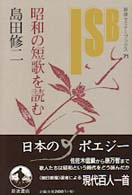- ホーム
- > 洋書
- > 英文書
- > Business / Economics
Full Description
It will serve as a critical reference for those interested in understanding and promoting sustainable tourism and hospitality development in Indonesia and will contribute significantly to the existing literature studies on sustainable tourism and hospitality practices in the region.



![別冊フレンド 2019年8月号[2019年7月13日発売]](../images/goods/ar2/web/eimgdata/EK-0724655.jpg)




